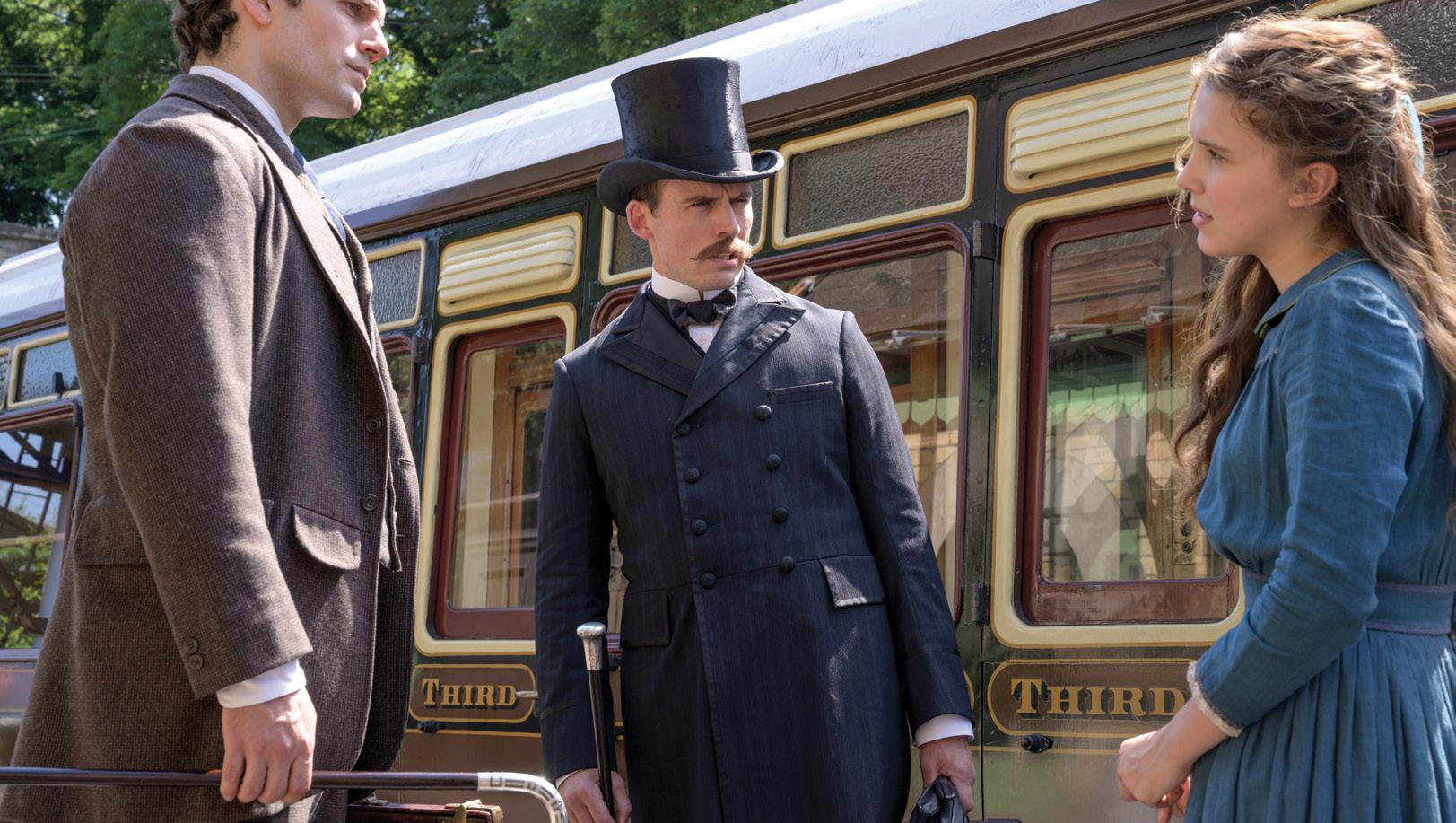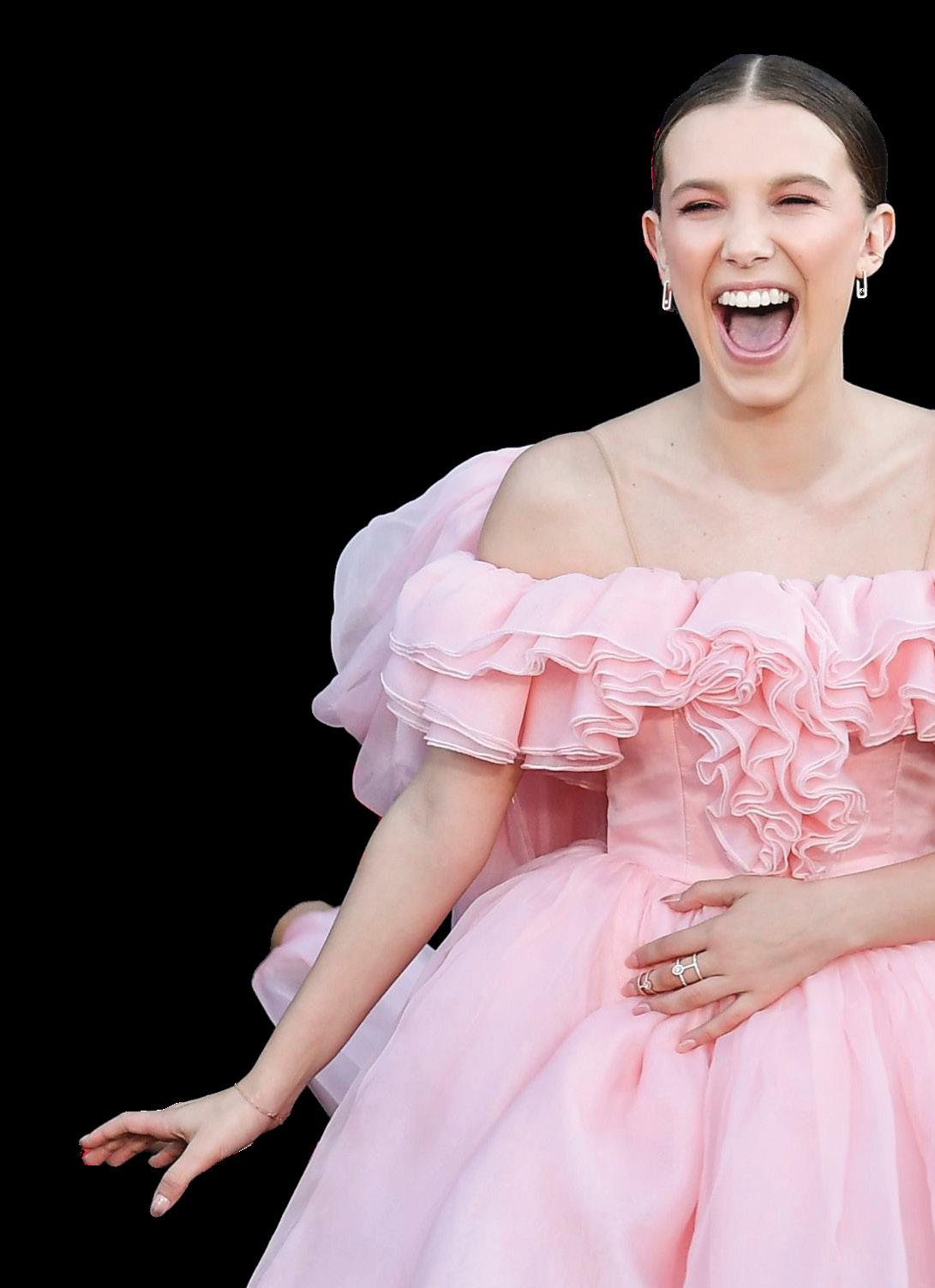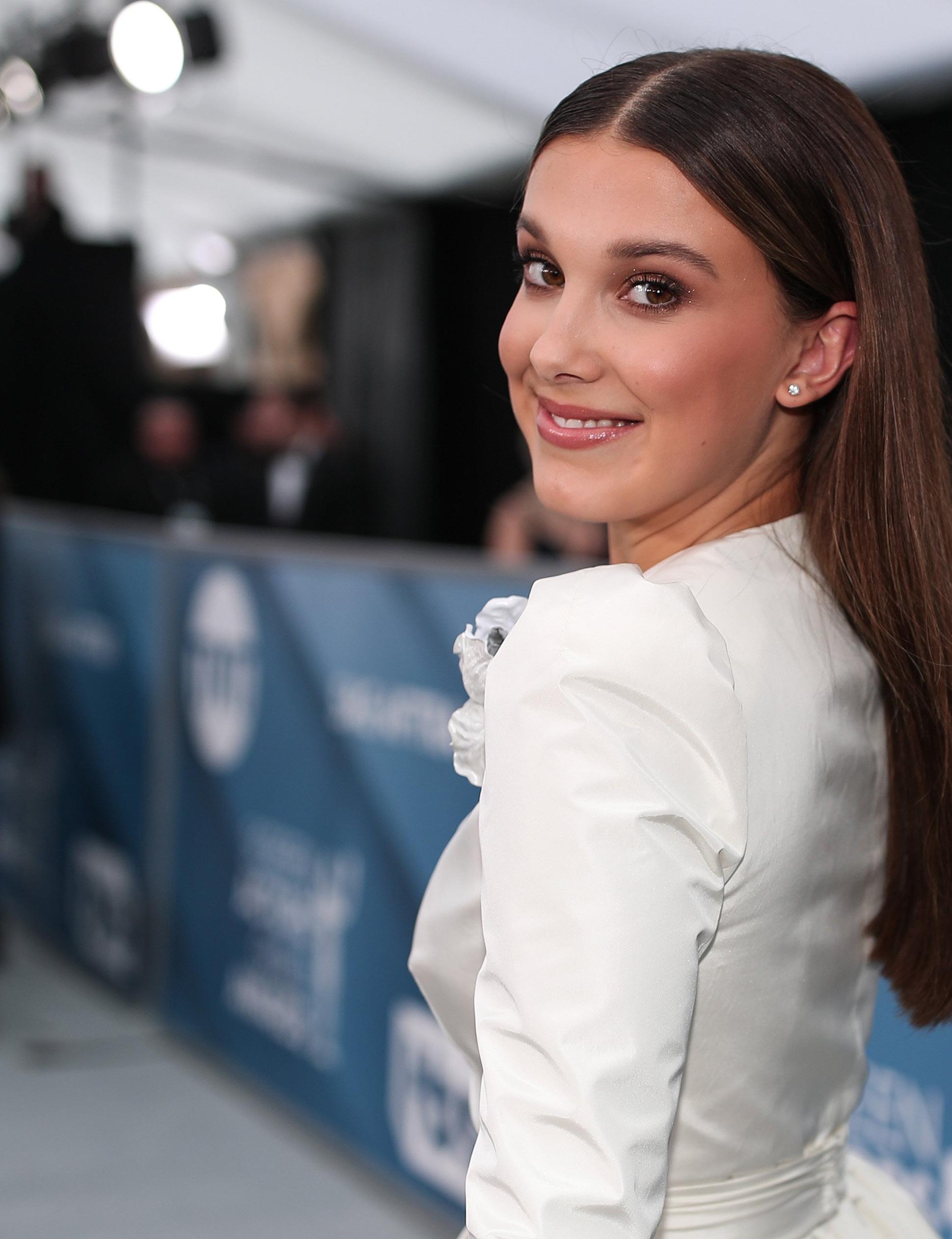
7 minute read
MAGNIFICENT MILLIE BOBBY BROWN
Millie Bobby Brown is an actress who, even at 17, is already so well versed in the mechanics of Hollywood, LA and London, yet whose true roots lay in even sunnier climes, here in Marbella. The star of the Godzilla movies, Enola Holmes and upcoming Netflix project The Girls I’ve Been was born in the southern Spanish resort in 2004, although her time here was all too fleeting – her parents relocated to the UK when she was just four years old. By her own admission, memories of those early days are fleeting, with recollections being built mainly on return visits in the years since.
WORDS & PHOTOGRAPHY FROM 24KILOS
Her grandparents still own and run a restaurant in the area – perhaps in future years the star can bring some of the A-list with her to sample its unique vibe. Her mobile phone is, these days, awash with big names, thanks in no small part to her landing the role of Eleven in Stranger Things at the age of 12. Major film offers followed, and necessitated a permanent move to the US, although she retains British citizenship through her parents.
While it seems most things have fallen perfectly at the actress’s feet, she hasn’t been without her own struggles. Notably, she was born with only partial hearing in one ear and has gradually lost it totally on one side over time.

Milly Bobby Brown
Perhaps that gives an indication as to why, despite enjoying the trappings and riches of the entertainment world, Millie has never turned her back on humanitarian and philanthropic projects that are close to her heart. In 2018, for instance, she was appointed as a UNICEF Goodwill Ambassador, the youngest person to be selected for such a position. The same year, she was also the youngest ever to feature on the TIME 100 list.
With a big career laid out in front of her, Millie Bobby Brown is arguably the film industry’s most promising talent, and undisputedly one of our most cherished exports.
EM: How have you found the last year or so? You have remained busy, but do you feel you have learned anything from this whole experience we have all been through?
MILLIE: I think there has been plenty of negativity for all of us, and my route through that has been to try to find some positive elements. There aren’t many, but what I will say is lockdown provided me with a way to start to reassess who I was and how my career was progressing.
It’s not like I’ve never been thrilled with the progress that I’ve made but sometimes when your life is a constant flurry of activity of touring and focusing on films and even humanitarian projects, it can be very easy to forget to take a few moments to reflect and assess where you are.
I mean how many times do you hear people, be they famous or not, question where the last five years have gone, or where the last 10 years have gone. I think a lot of people will come out of lockdown really having regathered or recaptured the ability to appraise their own lives, where they’re not totally mixed up in their madness and the intensity of every day, so I think that’s been really valuable.

Milly Bobby Brown
EM: They’ve the chance to ‘find themselves’?
MILLIE: Yes, exactly that. I think in a couple of interviews recently I’ve talked about finding myself which kind of sounds a bit strange when it’s from the mouth of a 17-year-old; but I guess what I really mean by that is listening to my own voice again, and that’s something I probably haven’t done for the past five years or so, so that’s been pretty cool.
EM: As well as being an iconic Netflix drama in its own right, Stranger Things obviously catapulted yourself and a few other actors into the limelight. How do you look back on the experience?
MILLIE: Well of course for a long time it was everything to me as a young actress landing that sort of role. It was an absolute dream and I’m taking away from it nothing but wholly positive experiences.
I think as producers, as cast, as crew, we all grew at the same time and along the same lines; so you emerge from there feeling as if you’ve really achieved something… not just as a professional or as an actress or anything else, but as a human being.
The story of how it came about is really important as well, in that the Duffer brothers were rejected so many times before they got their break. I think it was like 15 times before they got the nod and the funding and the encouragement they needed to pursue Stranger Things. I mean, in a way that just shows you how mad this industry is – that something of such high quality and originality and everything else could need to go through so many different pitches and processes, before finally coming to fruition… but that’s the way it is and thank goodness it did come to life finally. ›

Milly Bobby Brown
EM: How much of what you were taught as an actress, and as someone on set, will you take forward into other projects?
MILLIE: The really big thing for me was the brothers’ encouragement to actually develop the people they worked with. I think that’s slightly easier when you have a younger cast; after all you have a number of people around you who are a bit further back down the track and it’s only natural thing that they’re going to be learning on the job, so to speak. But there’s learning on the job naturally and then there’s real investment from the people you are there with to try to teach you the ropes and show you ways of doing things; and they definitely fall into the latter category. That was amazing for me… that they would give up so much time and effort to try to guide you on your own way towards building knowledge and creativity and understanding.
It was never just about me acting on Stranger Things – they taught me so many things about directing, so many things about writing on the show, about different shots. It’s great to have a voice on set as an actress, but as someone who genuinely ‘gets’ what’s going on around you, and who can add input and value – that’s even more valuable.
EM: And Godzilla vs Kong is the result?
MILLIE: Well, kind of, I guess. I’ve been lucky enough to have only worked on a few movies, but for different reasons they’ve been big. I’m very proud of that, and Godzilla is obviously the biggest of them all.

Milly Bobby Brown
EM: Filming was in Hawaii and Australia – what were those two places like to visit?
MILLIE: Incredible places, lovely people, spectacular scenery; but as I always say with these projects, you’re not there to holiday, to take time out, to go out partying or whatever… no-one can do that at the moment anyway.
So the reality was always about being there to work, and that’s pretty much what we did for four or five months across the two locations. It was pretty full on, never too much time to relax and to take time out, and the time difference is a big issue as well because you’re in a different part of the world and any friends back home are asleep.
EM: What about your other recent project, Enola Holmes. What was it like working alongside Henry Cavill?
MILLIE: That was a big thing for me – a huge experience for many different reasons. Obviously he’s an actor I’ve respected for a long time. The fact he has also been in the superhero genre gave me great inspiration to move into different roles in the same way that he has. I never wanted to be one of those actors who constantly did the same thing in similar ways; and to see someone like him at close hand being so versatile about how to develop and form a character… adjusting who you are and in every sense the way you go about what you do, right the way down to how you pronounce a word, was totally inspiring.
So the Enola Holmes project was a wonderful thing for me and I’m glad it’s been so well received.
EM: People said the movie was too far away from the real standards of Sherlock Holmes. What do you think about that?
MILLIE: Well obviously the central character we’re talking about here is Enola and I understand the point, namely that traditional interpretations of Sherlock Holmes have always been quite formal and rigid; and I guess this is completely the other way with someone two decades younger and in every way the younger sibling looking, as younger siblings tend to do, to rip apart the script and do things differently and have fun.
So I think in that respect we probably achieved everything we set out to, and obviously I’m very proud of that. Put another way, if we were to continue to remake things or reinterpret them in the mind of the original then life would certainly start to become rather boring, no?





